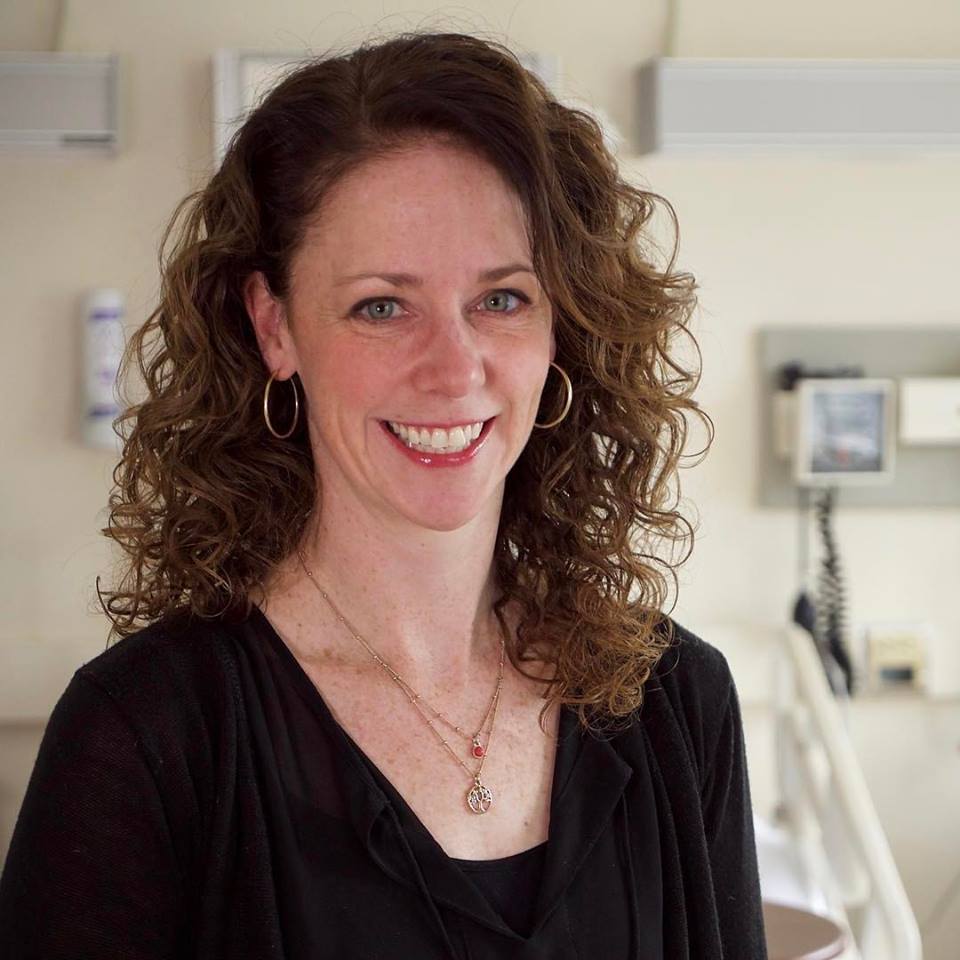Nursing alumna, student and adjunct wins 2022 distinguished dissertation award
Carrie Rewakowski explores nurses' civic engagement behaviors

Catherine (Carrie) Rewakowski is among the winners of Binghamton University’s 2022 Graduate Student Excellence awards. She won a Distinguished Dissertation Award for her work, “Examining the Relationships Among Civic Attitudes, Civic Engagement Behaviors and Sense of Community in a Sample of Nurses.”
Rewakowski earned a master’s degree in community health nursing in 2019 and a doctorate in nursing in 2021 from Binghamton’s Decker College of Nursing and Health Sciences. She is pursuing an advanced certificate at Decker to become a psychiatric mental health nurse practitioner and also serves as an adjunct instructor at the college.
BingUNews sat down with Rewakowski to learn more about her research.
Can you summarize your dissertation?
My work looks at the relationships between civic attitudes, civic engagement behaviors and sense of community in professional nurses. The purpose of the study was to gain an understanding of civic engagement among nurses by examining civic engagement activities and factors that influence engagement.
Why is this topic important?
Nurses are called on to advocate for the individuals, families and communities we serve. We’re being urged to help achieve health equity in the United States. We’re uniquely positioned to do this because we’re the largest group of healthcare professionals. We have the knowledge and the skills.
As nurses, we’re being called to engage, but are we actually engaging? When I started this study there wasn’t a lot of data out there about the frequency and types of civic activities in which professional nurses engage. Reviewing the literature, I found that sense of community and civic attitudes influence civic participation, but those concepts weren’t well studied among professional nurses.
What did your research show?
Nurses had high levels of civic attitudes, moderate levels of civic-engagement behaviors and high levels of sense of community. Compared to other populations, nurses were more likely to be involved in activities that engage society and seek to influence governmental outcomes. For instance, some nurses engage through voting, volunteering, being involved in politics and being active in creating policies and laws. Others work in their communities to understand how inequities impact health and try to change that.
I also found that nurses were more committed and emotionally connected to their groups, had stronger relationships with coworkers and peers, and had greater alignment with the purpose and goals of their profession.
What changes would you like to see in nursing as a result of your findings?
I hope this work shows that it matters that nurses are doing these things, and that organizations that employ nurses would be wise to support civic engagement by their nursing workforce. For instance, organizations could provide paid time off so nurses can get embedded in their communities to advance health or to serve on boards across many sectors.
Through the study, we also know that nurses who have higher incomes, more education and who are older are more civically engaged and have higher levels of civic attitude. They also have higher levels of sense of community, too. So, valuing nurses through their income (by paying them more) makes them more engaged.
Organizations that support their nurses to be more civically engaged in the community have the opportunity to have a nursing workforce that has a higher sense of community, which means they will likely be more loyal to the organizations they serve.
Are there changes you’d like to see in nursing education that would help nurses become more civically engaged?
In the nursing profession, we’re really good at educating our students about civic attitudes and having them be involved in service-learning experiences, which are often related to civic engagement. What we’re not so great at is continuing that education about civic attitudes and making civic engagement part of professional nursing in the working world. There is an opportunity to create stronger relationships between educational institutions and healthcare institutions to encourage nurses to engage and give them the opportunity to continue to learn — like providing continuing education.
What have you been doing since earning your PhD in nursing in 2021?
I’ve been doing some adjunct teaching. At Le Moyne College [Syracuse, N.Y.], I’m teaching an in-person class to senior-level nursing students on community health nursing. I’ve also been asked to teach a summer course at Utica University [Utica, N.Y.] on multivariate statistics.
And, I’m still involved at Binghamton! I developed a course for Decker’s RN to BS program on health policy and health disparities, which began in March. I taught that course and was able to put some of my research-related information into it.
I’m also teaching a section of NURS-471, a senior-level capstone project. We recently finished a week of presentations and I was so inspired and impressed by the students’ work. They’re promising, bright, engaging students.
You’re also back at Decker as a student, working toward a certificate as a psychiatric mental health nurse practitioner. What prompted that?
My ultimate goal is to be working in a position that supports my research because I know the potential to discover new knowledge, and to engage nurses and students in my research, is very strong.
In the meantime, I’m getting my psych NP certificate because I see the need for psychiatric nurse practitioners. Mental health issues are skyrocketing in our country, in our community, and there aren’t enough people to provide care. I know connecting with people in positive ways is one of my strengths, and I’m interested in the mental health field.

